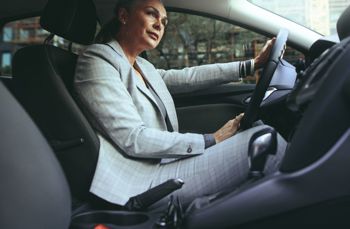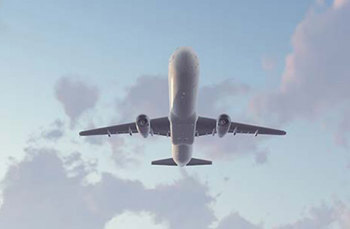Why do you need great VAT management software for your business?
Managing expenses can be a real nightmare, especially if you are using a manual method.
If your employees handwrite a manual expenses sheet, pin their receipts to it and then send it in to be processed then you could well be missing a trick.
Even more importantly, a great system will help you to manage the VAT aspect of expenses so that you don’t need to worry that you are breaking the rules.
In this post, we’ll look at features of modern VAT management systems that can help you manage your VAT on staff expenses.
Features of modern expense systems
Managing VAT codes
It goes without saying that, if you're a VAT-registered business, you'll need to submit your VAT return to HMRC.
To do this, you'll need a financial management software that supports VAT submissions, is compatible with the VAT Flat Rate Scheme, and is MTD compliant in order to submit VAT returns online.
The most obvious area that a system can help with VAT is to assign particular types of expense to the right VAT code.
If you have your system set up correctly then train travel will automatically be zero-rated, for example. No need to ever think about it.
This saves time but also means that employees in the field, who nobody expects to be VAT experts, can just enter their expenses and forget about VAT.
Reporting
Have you tried reporting on VAT from paper sheets?
It’s nigh on impossible to produce good quality reports, that you are confident are accurate and in a reasonable amount of time.
You may, of course, think that good reporting on expenses is just a ‘nice to have’, something for the future when you get to it. But you need to be able to show your workings for your VAT return now and reporting is a key aspect of this.
If you manually add in expenses then the report will save you time and if you are able, then having auto-posting set up to send data straight to your nominal ledger is an absolute god-send.
Of course with the push to Making Tax Digital, HMRC is wanting employers to minimise or eliminate any manual interventions on VAT so a great system helps enormously with this.
Calculation
When an employee sends in a paper claim do they work out the VAT on each transaction?
Sometimes these are helpfully shown on receipts but this isn’t always the case. If your staff are having to manually work out the VAT and then you your finance team check their calculation then we’d respectfully suggest it’s time for a change.
A great system works out the VAT automatically, no need for your employee to work it out and no need to check either.
Record keeping
One of the main rules around VAT (and PAYE) is that you keep records and for VAT purposes you need to keep these for at least 6 years.
If you have a filing cabinet and archive room full of expenses records then you are missing another trick.
A good expenses system will keep all of your records for you and will allow you to save an image of the receipts and invoices saving you space and making accessing information a doddle.
HMRC are perfectly happy with electronic records so you can be sure this is a compliant method.
Controls
In terms of VAT, expenses paid for an employee need to be reasonable. For PAYE purposes they are more prescriptive and you can’t go over certain amounts unless you want to create what is in effect a disguised payment.
One of the ways to combat this is to have clear policy guidelines for the amount that an employee can spend and then enforce these through your system.
The system only allows the employee to claim an amount for expenses that can be described as ‘reasonable’ in VAT terms and so you will be sure of being compliant.
Auditing
There are two aspects to this; the audit position and VAT inspections.
Your auditors (whether they are internal or external) will want to see that expenses are paid to policy and that you are correctly reporting VAT to HMRC.
If you get a VAT visit then you will need to have systems that can quickly show your treatment of certain items and provide the evidence to back up the claims.
A great system will help with both of these aspects and will give your auditors and HMRC the confidence that you are effectively managing your VAT on expenses and that there is little risk.
A great system gives you confidence
If you want to remain VAT compliant then using software to run your expenses procedure is the obvious way to go.
Yes, a great system will save you time and increase the control you have and the reporting you are able to do.
But importantly it will also help you to remain compliant with VAT legislation and to give your company the confidence it needs when looking at staff expenses.
While there are many options for VAT accounting software, consider the ones that best fits your needs. Choosing the right VAT software can make a colossal difference in how you streamline the VAT filing process and ensure that you're compliant with HMRC's requirements.
Our Expense Management Software includes all the features outlined above. Book a demo today so we can show you all the features and then you can decide if it's the right system for you.
VAT on expenses guides
Handy guides for you to download and keep in your back pocket.

The ultimate guide to VAT on expenses
Master the basics of VAT on expenses and be confident in what you can claim for with this guide.

The 7 step guide to getting compliant
Ensuring you get, and stay, VAT compliant with Expenses can seem like a mammoth task. With our step by step guide, you can be confident you're not missing a thing.

The guide for what you could be missing
Whether you're a VAT veteran or a VAT virgin, VAT on expenses can still be a subject that gives accountants sleepless nights. This guide walks you through all of those commonly missed items in one download.
VAT on expenses information and advice

The basics of subsistence and VAT
Go to article
Why Jaffa Cakes have an important role to play in Expenses and VAT
Go to article
Mileage allowance and VAT
Go to article
10 tips to help you manage your expenses and VAT
Go to article
Rules on expenses and VAT when staying away from home on business
Go to article
VAT on staff business travel
Go to article
Should you add VAT to expenses your customers will be paying?
Go to article
Writing your expenses policy - the things to think about
Go to article